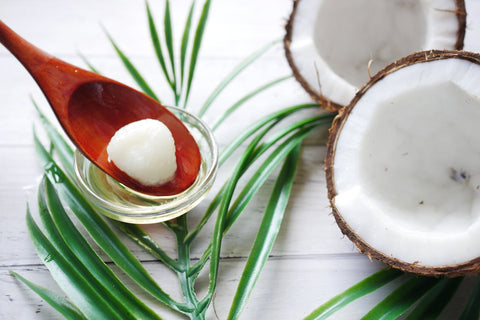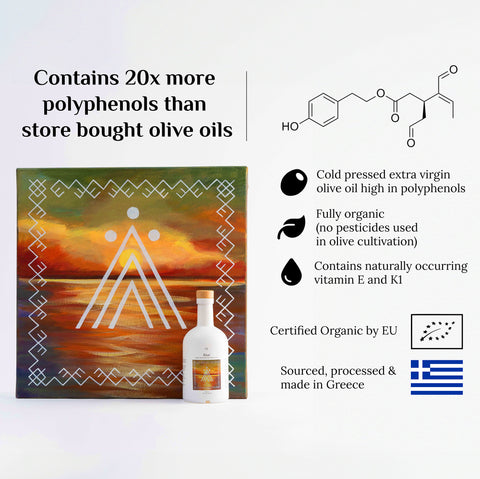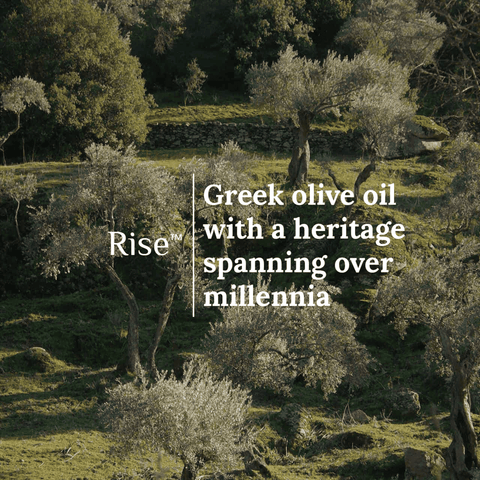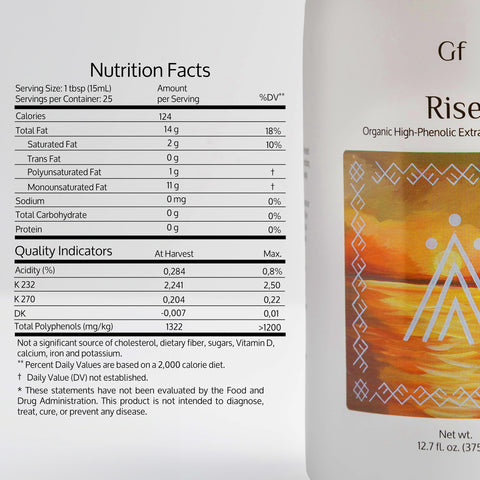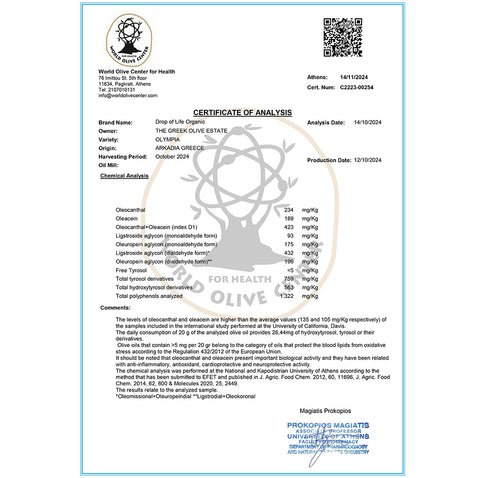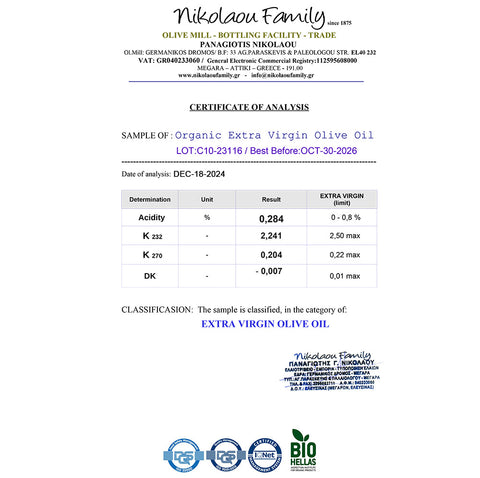Greek olive oil is widely celebrated for its quality, flavor, and health benefits. Greece is one of the oldest olive-growing regions in the world, and its climate, soil, and production practices make its olive oil distinct from oils produced in other regions. But what exactly sets Greek olive oil apart? Let’s delve into the unique characteristics, nutritional benefits, and the science behind what makes it a superior choice.
1. Unique Climate and Terrain
Greece’s Mediterranean climate and unique landscape contribute to the high quality of its olive oil. The country’s warm temperatures, abundant sunlight, and limited rainfall create ideal conditions for olive growth. Greek olive trees thrive in dry, rocky soils, which forces them to develop robust root systems that yield nutrient-dense olives.
- Why It Matters: The challenging growing environment and nutrient-dense soil mean that Greek olives often contain higher concentrations of health-promoting compounds, such as polyphenols, compared to olives grown in more temperate regions.
 2. High Polyphenol Content
2. High Polyphenol Content
One of the standout features of Greek olive oil is its rich polyphenol content. Polyphenols are antioxidants that provide anti-inflammatory benefits, support cardiovascular health, and may even have cancer-preventive properties. The polyphenol levels in Greek olive oil are significantly higher than those found in olive oils from other regions due to the local olive varieties and traditional cold-pressing techniques.
- Scientific Backing: A study published in Antioxidants found that Greek olive oil, particularly from the Koroneiki olive variety, contains notably higher levels of polyphenols compared to other varieties. These antioxidants play a role in protecting the body against oxidative stress, which is linked to various chronic diseases (source: PubMed, 2014).
3. Traditional Harvesting and Production Methods
Greek olive oil production often relies on traditional methods, where olives are harvested by hand to avoid bruising, and oils are cold-pressed without heat or chemicals. This approach preserves the oil’s natural flavor and nutrient content. Greek producers take pride in maintaining high-quality standards, which leads to a less processed, more nutrient-dense final product.
- Cold-Pressing Advantage: Cold-pressing is essential for retaining the bioactive compounds in olive oil. Studies have shown that higher processing temperatures can degrade polyphenols, reducing the health benefits of the oil. Cold-pressed Greek olive oils retain more antioxidants and healthy fats compared to oils subjected to higher heat during extraction (source: MDPI, 2022).
 4. Rich in Healthy Monounsaturated Fats
4. Rich in Healthy Monounsaturated Fats
Greek olive oil is a top source of monounsaturated fats, primarily oleic acid. Monounsaturated fats are known to support cardiovascular health by improving cholesterol levels and reducing inflammation. Consuming olive oil regularly has been associated with a lower risk of heart disease, which is why it’s a staple in the Mediterranean diet.
- Supporting Research: A study done in 2006 found that a Mediterranean diet rich in monounsaturated fats from olive oil reduced cardiovascular events by nearly 30% compared to a low-fat diet (source: PubMed, 2006).
5. Flavor and Aromatic Complexity
The unique growing conditions, olive varieties, and production techniques give Greek olive oil a distinct flavor profile. Greek olive oil is known for its robust, fruity, and peppery taste, with hints of grassiness and herbs. This complexity adds depth to dishes and pairs well with various foods, from salads to seafood.
- Flavor as a Quality Marker: The strong, peppery notes in Greek olive oil are indicators of its high polyphenol content. These phenolic compounds contribute to the oil’s characteristic bitterness and spiciness, signifying its antioxidant richness and health-promoting properties.
 6. Health Benefits of Greek Olive Oil
6. Health Benefits of Greek Olive Oil
Greek olive oil offers a variety of health benefits due to its antioxidant, anti-inflammatory, and heart-protective properties.
-
Heart Health: Regular consumption of olive oil has been linked to improved heart health by lowering blood pressure, reducing LDL cholesterol, and supporting vascular function. Research shows that high-polyphenol olive oils, like many Greek varieties, have a more significant impact on heart health (source: PubMed, 2018).
-
Anti-Inflammatory Properties: Polyphenols in Greek olive oil act as natural anti-inflammatories, which can help reduce inflammation and support joint and immune health. Studies have found that oleocanthal, a phenolic compound found in extra-virgin olive oil, acts similarly to ibuprofen in its anti-inflammatory effects (source: PubMed, 2014).

